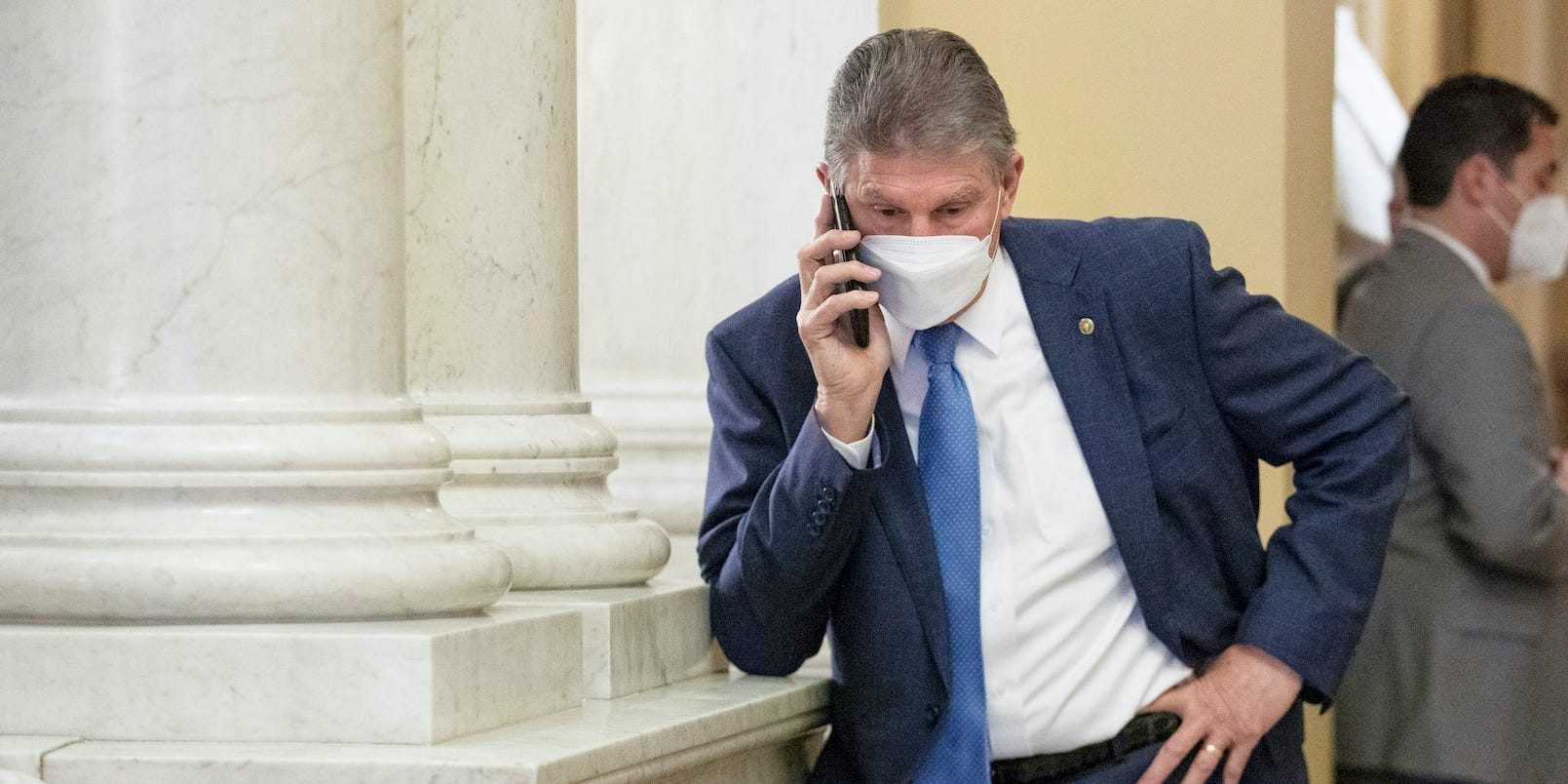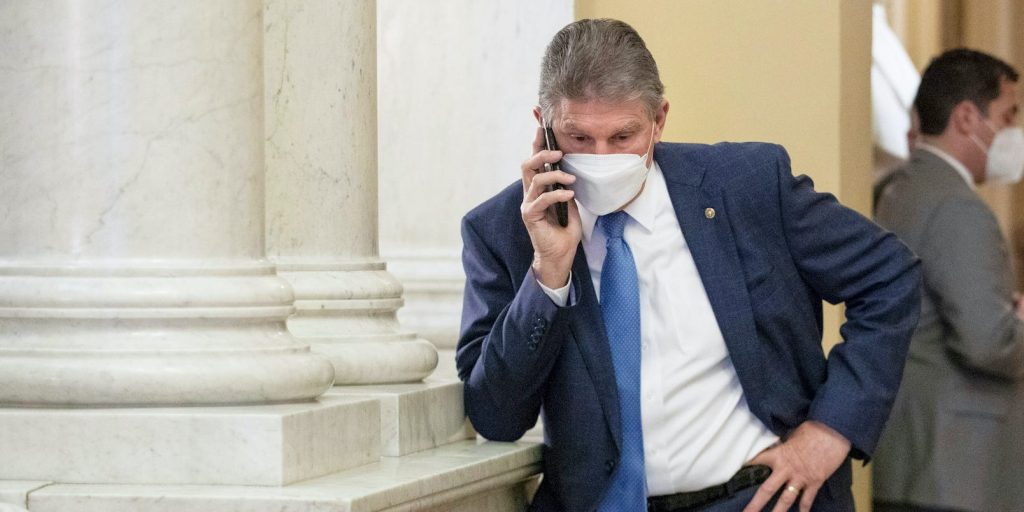
- Democrats want to pass a slimmed-down version of Biden's Build Back Better spending plan.
- But they'll need the support of Sen. Joe Manchin, who nixed the last version of the bill.
- Manchin also seems more keen to prioritize passing a bipartisan election reform bill instead.
Congressional Democrats are returning to Washington this week with a packed to-do list that includes potential election reform, government funding, and eventually getting some chunk of President Joe Biden's stalled economic agenda over the finish line.
The lack of movement on the latter is prompting anxiety among Democrats, particularly the so-called "front-liners" running for re-election in competitive House districts. With Biden's approval ratings sagging, they're scrambling to demonstrate success in delivering tangible improvements in voters' lives on pledges like curbing prescription drug costs.
But their biggest obstacle remains Sen. Joe Manchin of West Virginia. He came out in opposition to the package, pumping the brakes on it. Senate Democrats can't advance the plan without his vote in the 50-50 Senate.
Some of those frontliners are urging the Senate to advance the $555 billion portion of the package focused on combating the climate crisis — a section of the bill that Manchin has previously said he could support.
"Climate change simply should not be a partisan issue," Rep. Josh Gottheimer of New Jersey, one of the frontliners said on the press call. "It is just something we must do."
Rep. Abigail Spanberger of Virginia argued the plan would go a long way in keeping energy prices in check for families and small businesses, adding "it is good for their bottom line.
Biden said earlier in the month he believed the party could coalesce around the climate slice of the plan, largely made up of tax credits designed to ease a transition to cleaner energy sources. But Democrats are already running into some familiar obstacles on other elements of their agenda.
Manchin and Sen. Kyrsten Sinema shut down their party's efforts earlier this month to pass major voting rights legislation along party lines. The pair voted against changes to the Senate filibuster that would have possibly paved the way for simple-majority passage of the bill.
But now, Manchin appears far more interested in working with Sen. Susan Collins of Maine and a group of over a dozen senators on a burgeoning bipartisan election reform deal that can get the necessary 60 votes in the Senate first before wrangling with Build Back Better.
Manchin told Insider on January 20 that "we can work on everything," but called election reform "the thing we want to make sure we get done quickly." He added future negotiations on the centerpiece of Biden's agenda would be "starting from scratch."
The West Virginia Democrat similarly told West Virginia radio host Hoppy Kercheval last Thursday that "taking care of our voting and protecting our right to vote and protecting the ballot box is the most important, urgent thing we have right now."
A bipartisan bill would likely center around reforms to the Electoral Count Act of 1887, the once-obscure 19th-century law that govern how Congress counts presidential electors and resolves disputes over presidential election results in the Electoral College.
The law took center stage during the January 6, 2021 insurrection as former President Donald Trump pressured former VP Mike Pence to disregard the law in order to overturn his 2020 election loss. Senators have floated clarifying that the vice president's role is solely ceremonial, in addition to other reforms that make the law less vulnerable to partisan exploitation.
Some Senators are also discussing including more funding for elections and federal protections against harassment of election workers in a potential bipartisan deal.
In addition to ambitious domestic policy initiatives like Build Back Better, a major competitiveness and supply chain bill now in the House, and election reform, Congress also has to deal with the evolving situation in Ukraine and strike an agreement on funding the federal government by February 18.
Manchin doesn't seem to be in a rush to renegotiate the Build Back Better plan. He told reporters on Monday that no "formal" meetings have taken place.
And the Senate also has confirming Biden's yet-to-be-named Supreme Court nominee to replace retiring Supreme Court Justice Stephen Breyer on its spring to-do list — another place where Manchin's support will be key.
